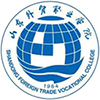- Contacts: Ms Hu, Ms Cui
- Telephone: 0086-10-68473037
- Email:conference@beiwaionline.com
- QQ群: 554664326
- Wechat Subscription: search “CALL 国际会议” or scan the QR code
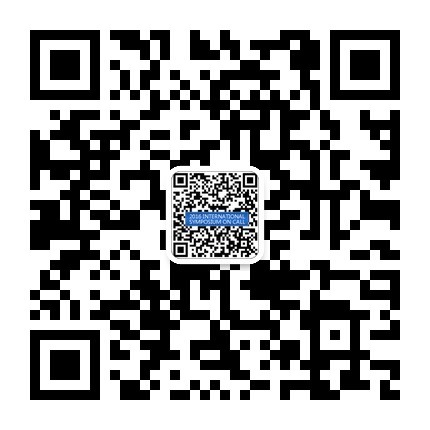


 Mike Sharples Mike Sharples
|
Introduction
Mike Sharples is Professor of Educational Technology in the Institute of Educational Technology at The Open University, UK. He also has a post as Academic Lead for the FutureLearn company. His research involves human-centred design of new technologies and environments for learning. He inaugurated the mLearn conference series and was Founding President of the International Association for Mobile Learning. He is Associate Editor in Chief of IEEE Transactions on Learning Technologies. He is author of over 300 papers in the areas of educational technology. Research areas:science and language education, human-centered design of personal technologies, artificial intelligence and cognitive science. Plenary speech Title: Language Learning at Massive Scale Abstract:In May and June 2015, over 430,000 people registered for the six-week ‘Understanding IELTS’ online course from FutureLearn – the largest educational gathering ever held. Participants on the course not only learned from videos about topics such as Academic Writing and Speaking English, they also shared their experiences of learning English and their concerns about the IELTS test. One video alone (on ‘Exams and me’) attracted over 50,000 comments and responses from learners. In my talk I shall describe the pedagogy of the FutureLearn platform and the design of massive-scale courses for language learning. Some types of teaching get worse as the number of learners increases, some are impervious to scale, and some work better at massive scale. How can we design new methods of social-networked learning that engage the knowledge, experience and culture of learners? I shall also discuss how analysis of data from massive-scale courses can inform course design. |
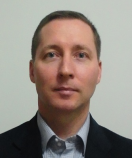 Glenn Stockwell Glenn Stockwell
|
Introduction
Glenn Stockwell (Ph.D., University of Queensland) is Professor at Waseda University, Tokyo, Japan. He is co-author of CALL Dimensions: Issues and Options in Computer Assisted Language Learning (Lawrence Erlbaum Associates, 2006) with Mike Levy, editor of Computer-Assisted Language Learning: Diversity in Research and Practice (Cambridge University Press, 2012), and has published numerous book chapters and articles in the field of CALL. He is Editor-in-Chief of The JALT CALL Journal, Associate Editor of Computer Assisted Language Learning and Language Learning & Technology, and is on the editorial boards of ReCALL, System and the CALICO Journal. Research areas: CALL, CMC, Applied Linguistics, Second Language Acquisition Theory, Teaching Methodologies. Plenary speech Title: Technology and the Changing Face of English Language Teaching Abstract:The range of technologies available to language teachers and learners has increased dramatically over the past several years, providing both with a diversity of options that can be both exciting and challenging. As new technologies appear, they bring with them possibilities regarding what can be achieved both inside and outside of the classroom, but it is often difficult to keep up with the range of technologies that become available. In addition, the very environments in which language teachers find themselves in are also constantly evolving, with expectations of administration and learners changing rapidly. These changes have resulted in a paradigm shift in the role of technologies that potentially rewrites the way in which teaching and learning take place. Some of the challenges associated with this paradigm shift will be discussed, and some suggestions regarding keeping up with these trends will be provided. The presentation will conclude with a discussion of six basic principles that may be of use to language teachers in keeping an eye on the larger language teaching and learning environment and assist them in taking a step back and making choices that are most appropriate to their own individual contexts in the midst of this change. |
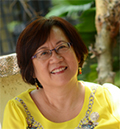 Thang Siew Ming Thang Siew Ming
|
Introduction
Dr. Thang Siew Ming is Professor and former Chair of the School of Language Studies and Linguistics, The National University of Malaysia. She is President of PacCALL and Co-chair of GLoCALL series of conferences and President of APAREM (Asia Pacific Association of Research in Eye Movements). She has published extensively and is on the editorial boards of numerous well-known CALL and Language Education journals. Her recent publications are available in highly reputable journals such as the CALL, TAPER, Language & Education, EAR, AJET, IRRODL, IJPL, 3L and GEMA. Research areas: Learner Autonomy, CALL, Learning Styles and Strategies, Motivation Studies and Eye Movements Research. Plenary speech Title: Digital Storytelling as a CALL Project in a South-east Asian Context: Its Impact on Teachers and Students Abstract: Digital storytelling (DST) is a technological innovation that combines the art of storytelling with a variety of audio, video and multimedia images. Numerous studies in western countries have revealed its effectiveness in enhancing language learning skills and infusing technological skills, inventive thinking and problem solving skills among students. These skills have been described as workplace skills or 21st century skills.Studies on the effectiveness of the DST project in fostering development of such skills have been undertaken in some Asian contexts but rarely in the South-East Asian context. This presentation delineates the findings of a digital storytelling project which was implemented over a three-year period with the intention of enhancing the students' workplace skills. The study was approached from two perspectives: 1) the teachers' perspective which explores their concerns regarding technology adoption and 2)the students' perspective which look into their reactions towards the project and their perceptions of its effectiveness in enhancing workplace skills. The project was conducted on first-year undergraduates from a public university in Malaysia taking an English for Academic Purposes course. The findings were derived from both quantitative and qualitative methods. Implications of the findings to the South-east Asian context will be drawn. |
 Youzhong Sun Youzhong Sun
|
Introduction
Professor Sun Youzhong is currently the vice president of Beijing Foreign Studies University (BFSU). He holds important academic posts including Secretary-in-General, Advisory Committee of Foreign Languages and Literature Education under Ministry of Education, Executive Director of China Foreign Language Teaching and Research Association, Chair of China Association for Intercultural Communication, Chair of the National English for Specific Purposes Committee, Advisor of the International Association for Intercultural Communication Studies (IAICS), etc. His research involves intercultural communication, American studies, and English language education. He has published numerous books and over 80 research papers and book chapters in these areas. He is the editor of Chinese Journal of ESP and the advisory board member of Journal of Intercultural Communication Studies. Research areas: Intercultural communication, American studies, English language education. Plenary speech Title: Promoting Liberal Education at Universities — An E-learning Approach Abstract: Liberal education constitutes a core element of the newly released China National Standard of Teaching Quality for Tertiary English Majors. Arguably one of the most effective ways of promoting liberal education might be integrating the reading and discussion of classic works into the curriculum of the English discipline. However, there exist major obstacles in the way of this liberal education approach such as inadequacy of appropriate graded reading materials in an EFL context, inability to track students’ reading process, and lack of communication among students. Against this backdrop, the paper reports an e-learning approach to promote liberal education among the third-year English majors at Beijing Foreign Studies University. Along with teacher training, this teaching reform makes effective use of a digital reading platform with three core functions of offering graded reading classics, recording and tracking the reading process and providing online forums for discussion of the reading materials. A group of 140 students and four tutors participated in a fourteen-week teaching experiment. Research methods in the form of student pre and post questionnaires, student and teacher interviews, teacher journals were used to examine the efficacy of the teaching experiment. This study demonstrates that the integration of e-learning and the traditional lecture-based classroom instruction can effectively contribute to students’ accessibility to classic works, the process management of students’ extracurricular reading, and collaborative learning, leading to the enrichment of resources and opportunities for liberal education. |
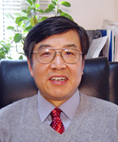 Yueguo Gu Yueguo Gu
|
Introduction
Yueguo Gu is a research professor of linguistics, and head of the Contemporary Linguistics Department, the Chinese Academy of Social Sciences. He is also Pro-Vice-Chancellor of Beijing Foreign Studies University, President of China Association for Computer-Assisted Language Learning (ChinaCALL), and Founding Dean of the Institute of Online Education and Guest Professor of the University of Nottingham. Research areas: pragmatics, discourse analysis, corpus linguistics, rhetoric, the philosophy of language and online education. Plenary speech Title: Designing an AR-Enabling Platform for Teacher Development Abstract:Action research (AR) since it conception in 1943 has proved itself to be a vital research paradigm for professional development. It has extensively been applied in sociology, medicine, management, law and, perhaps most important, in education. We applied it first to writing of BA Ed dissertation, and then to writing of BA dissertation in business management, and finance at the Institute of Beiwai Online Education. The distinctive feature of AR-based dissertation is students’ commitment to, and implementation of practical projects carried out in real-life workplaces. Students are empowered with a Web-based AR management system with downloadable self-taught tutorials, which won the State Outstanding Courseware Award in 2006. |





